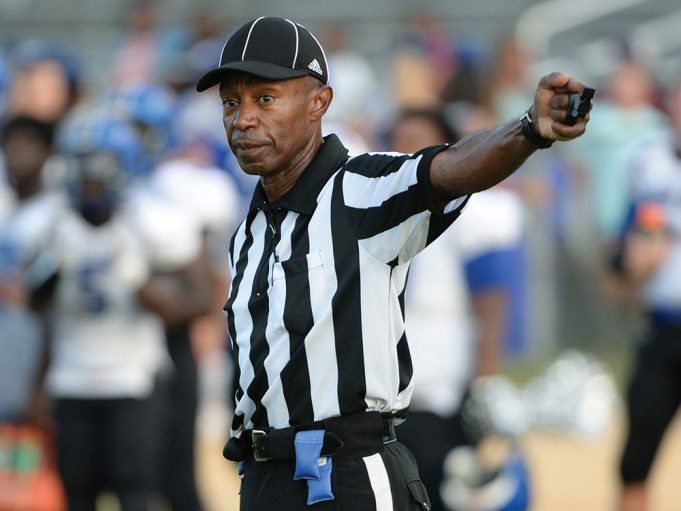Over the years we’ve all seen and worked with officials who seem to think that mechanics manuals are like buffet lines — chock full of items to be chosen or ignored as they see fit. The attitude that they know the one “true” way and will follow it regardless of what the prescribed mechanics require afflicts veterans more than younger officials, but some of the latter group are also guilty.
This approach is wrong for several reasons. While we may disagree with the mechanics, it is incumbent on all of us to adhere to them. We can go through channels to try to get them changed to reflect our notions of how the field should be covered and how crew members should interact, but if we are unsuccessful we should bite the bullet and go along.
Although sometimes mechanics committees either are empowered to promulgate mechanics that reflect their own views or are in agreement about what they produce, the more likely scenario is that they were faced with conflicting views on particular points and, in the interest of uniformity, had to arrive at a compromise. The bottom line is that if you believe a mechanic is unworkable or just plain stupid, chances are that some people involved in its drafting felt the same way. Either another group succeeded in securing enough votes to get it adopted, or the mechanic was really favored by virtually no one and instead was the product of a last-ditch effort at compromise.
Deviating from the mechanics manual can lead to inconsistency in onfield calls
One problem with deviating from the mechanics manual is that it can lead to even more inconsistency in onfield calls. Some members of a crew would have different looks at the players’ actions than they would have had if they used the mechanic everyone else was using.
Mechanics mavericks also cause problems for other members of the crew in a game who might be used to doing things the proper way. Even if a crew stays together all year and perhaps for several years, there may be occasions when a member has to be replaced for one or two games, and if the officials have decided to go their own way mechanically, chaos can ensue when the replacement joins them. Adjusting can be especially difficult for younger officials who have enough on their hands to master what the prescribed manual says without having to deal with the new twist that the maverick brings to the table.
Then there is the “copycat” syndrome. If one crew or individual deviates from the mechanics manual and word gets around that has been done and has brought on no repercussions, others will infer that they are free to do the same thing. The next thing you know there will be several different crews or officials striking out on their own, thus destroying any semblance of consistency within that group.
Freelancing can also bite you in the backside if there is an observer or officials’ scout in the stands. The perception that a crew or crew member is “going it alone” is not calculated to result in kudos or in career advancement.
A word about officiating clinics and camps. The ones that feature NFL and top college officials can be especially good in many different ways. The problem is that sometimes the information about coverage or position mechanics that is imparted at those clinics is inconsistent with the approved mechanics. It may well be that what you learned at the camp is better, but the best approach is to try to convince the powers-that-be in your area that is the case.
Most officials have healthy egos, and the longer they work, the greater the tendency is to think that they know best how particular play situations should be handled. However, in the interest of uniformity, among other things, the best approach is to check your ego at the locker room door and do things “by the book.” We can cause many problems for ourselves, our crews and the other crews in our league or association if we don’t.
What's Your Call? Leave a Comment:
Note: This article is archival in nature. Rules, interpretations, mechanics, philosophies and other information may or may not be correct for the current year.
This article is the copyright of ©Referee Enterprises, Inc., and may not be republished in whole or in part online, in print or in any capacity without expressed written permission from Referee. The article is made available for educational use by individuals.


















